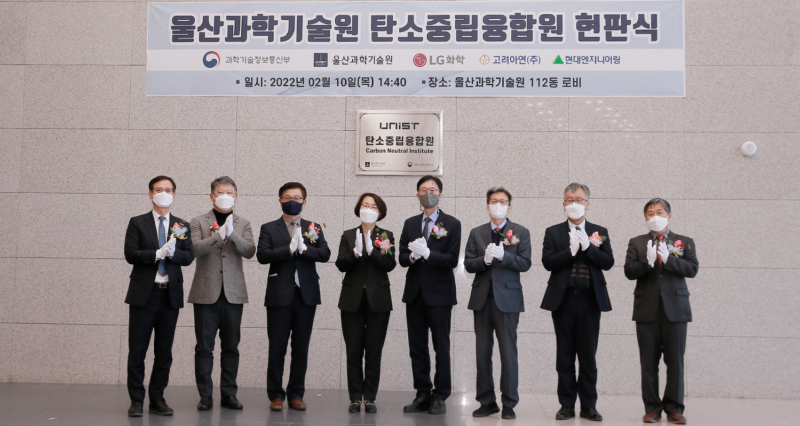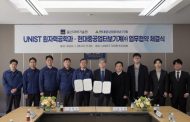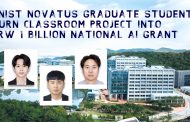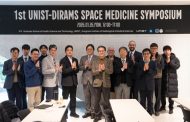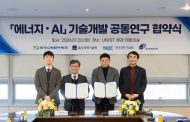South Korean Minister Hyesook Lim of Science and ICT visited UNIST in her efforts to secure technological leadership in the growing secondary battery market and to monitor the current status of academia-industry innovation for the realization of carbon neutrality.
The visit took place on Thursday, February 10, 2021. The purpose of this visit was to monitor and inspect the current status and future plans for R&D and industry-academic collaborations in Ulsan, particularly for the realization of carbon neutrality, and to provide the necessary support for related research. This also includes fostering the secondary battery industry, one of the national strategic technologies, designated by the Korean government. It took place in the order of industry-academia researchers’ meeting, the signboard hanging ceremony of the UNIST Carbon Neutral Institute, and a tour of major research sites.
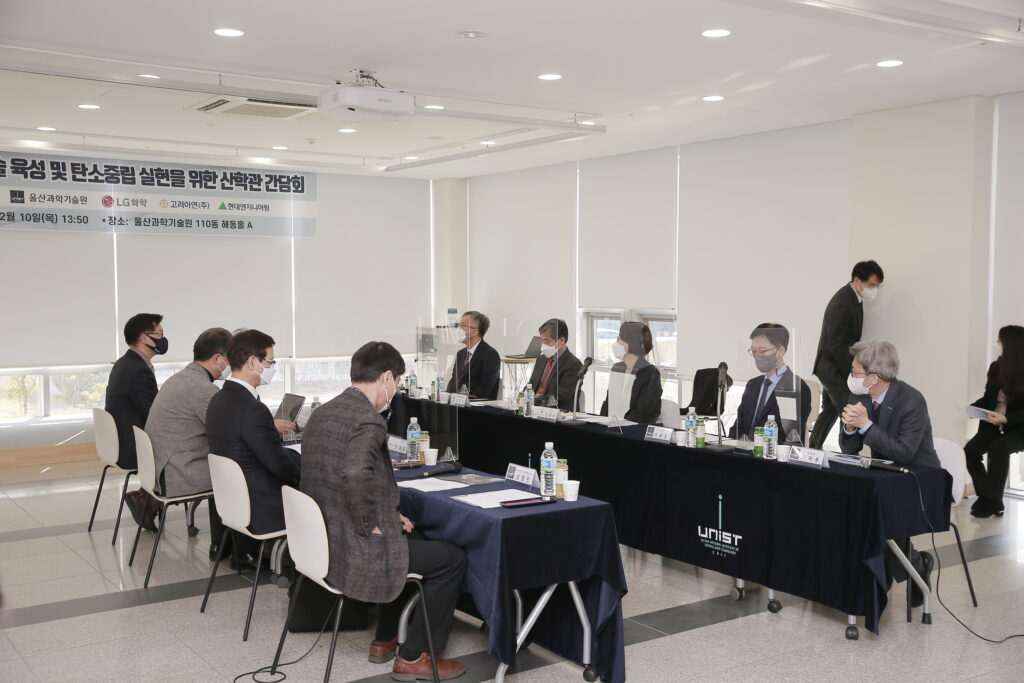
During the industry-academic researchers’ meeting took place in the Haedong Hall, located in Engineering Bldg. 110 at UNIST.
UNIST has been actively engaged in industry-academic cooperation with local industries based on advanced research in the field of carbon neutrality. Through this, UNIST has secured advanced research capabilities in key emerging technologies for achieving carbon neutrality, such as the secondary battery, hydrogen, and carbon capture, use, and storage (CCUS). Besides, the scale of R&D projects related to carbon neutrality that UNIST has been carrying out is the largest among the four major S&T institutions in South Korea.
The industry-academia researchers’ meeting was prepared as a venue for industry officials who have been engaged in industry-academic cooperation with UNIST to discuss pending issues and discover promising technology policies. The meeting has been attended by Dean Sung Youb Kim (College of Engineering, UNIST), Professor Kyeong-Min Jeong (School of Energy and Chemical Engineering, UNIST), and key officials from Korea Zinc Co., Ltd., LG Chem Ltd., and Hyundai Engineering Co. Ltd.
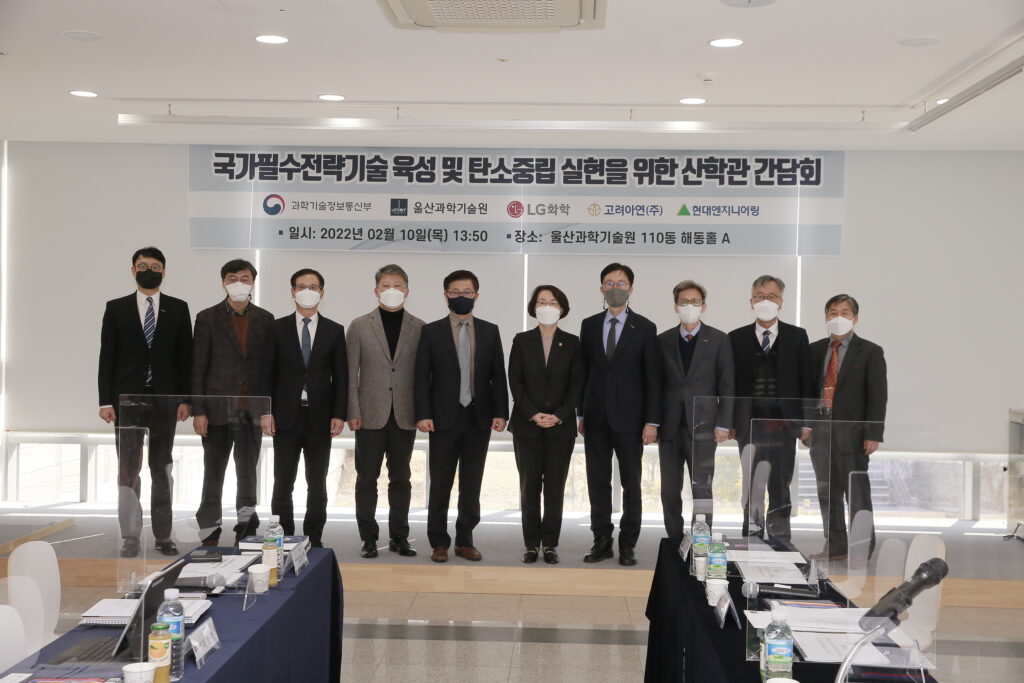
The meeting has been attended by key officials from both academia and industry.
Korea Zinc Co., Ltd., in partnership with UNIST, has been promoting and fostering collaborative research in the areas of secondary batteries and advanced materials. In December 2021, the company donated KRW 300 million to UNIST for the purpose of university development, including the establishment of infrastructure necessary for major key projects, promoted by UNIST.
South Korea’s No. 1 chemical company, LG Chem Ltd. signed a Memorandum of Understanding (MoU) with UNIST in December 2021 to develop technologies related to sustainability and future growth. The company, in partnership with UNIST, has been carrying out research activities to develop green technologies to more effectively pursue EGS management. Hyundai Engineering Co. Ltd., in collaboration with GT, Inc., a faculty startup founded by Professor Guntae Kim, has been promoting the demonstration project of ‘metal-CO2 systems’ that reduces CO2, while producing carbonates and hydrogen.
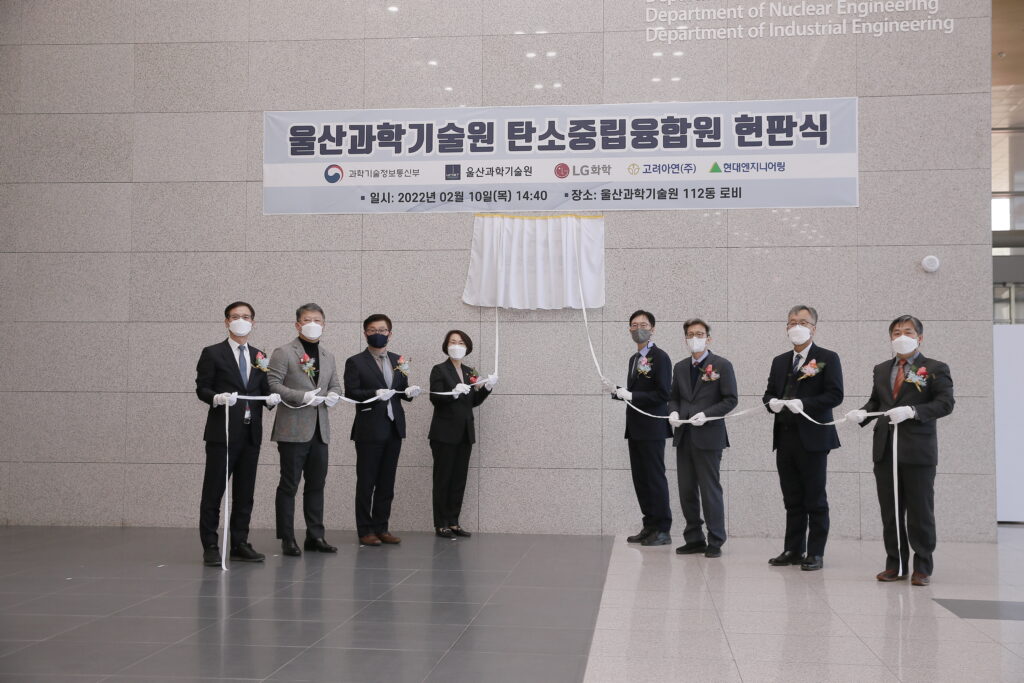
The signboard hanging ceremony of the Carbon Neutral Institute also took place on February 10, 2022.
The meeting, which was followed by the signboard hanging ceremony of UNIST Carbon Neutral Institute, was organized to celebrate the start of the new institute, which will be launched in earnest this year.
The Carbon Neutral Institute will pave the way for education and research related to carbon neutrality. The new institute plans to implement both undergraduate and graduate programs that specialized in carbon neutrality, undertake research projects, involving the development and demonstration of core technologies for carbon-neutral technology, and conduct research on carbon neutrality policies and technologies.
The government will be providing a budget of KRW 3.4 billion this year for the realization of carbon neutrality in Ulsan, centered on UNIST.
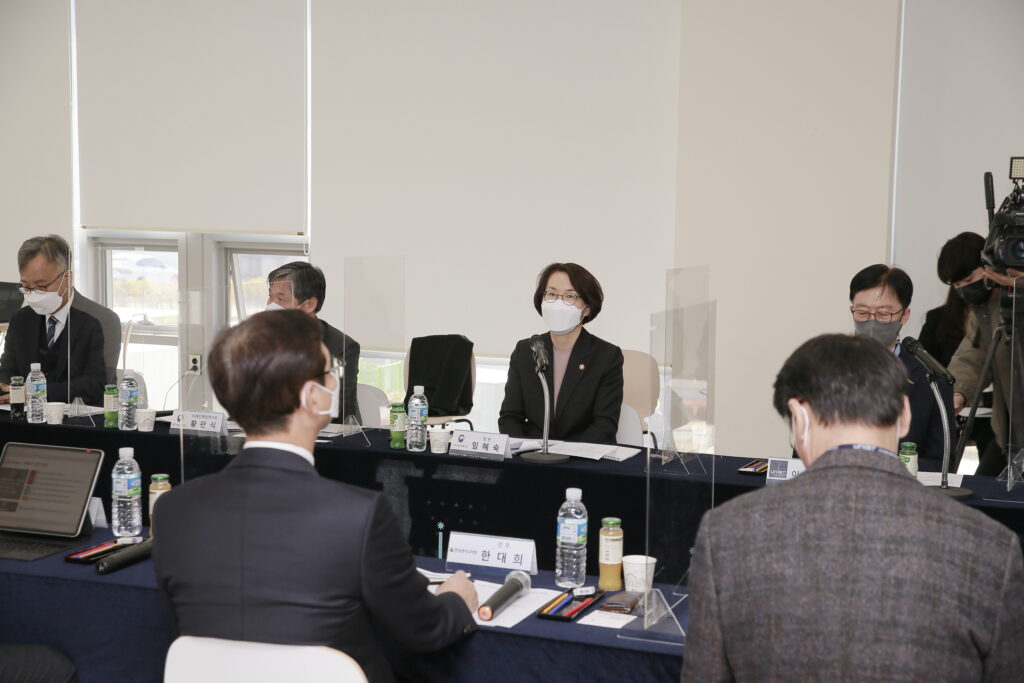
Minister Lim delivered an opening address at the meeting.
The ceremony was followed by a tour of three laboratories that are actively participating in the joint technology development and industry-academia activities with local industries via faculty startups.
Professor Guntae Kim’s laboratory within the School of Energy and Chemical Engineering at UNIST develops ‘metal-CO2 systems’ that reduce CO2, while simultaneously producing hydrogen, electricity, and carbonates with CO2, as the main primary energy source. Using this technology, Professor Kim has established a faculty startup, called GT Inc.
Professor Jong-Beom Baek’s laboratory within the School of Energy and Chemical Engineering at UNIST, has secured ammonia generation technology using mechanochemical ball milling technique. This technology, which consumes much less energy than the existing ammonia production method, but has a high yield, is drawing attention from the industry as a key element technology to support ammonia production and transportation to realize a hydrogen society.
Professor Ji Wook Jang’s laboratory within the School of Energy and Chemical Engineering at UNIST, is taking the lead in developing a hydrogen storage system using photocatalysts and seawater cells for solar hydrogen production. Various studies that produce and store hydrogen based on eco-friendly energy technology are expected to help realize carbon neutrality.


